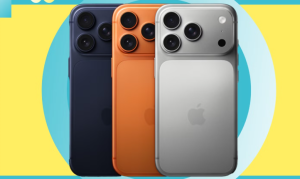The mobile landscape is on the brink of a revolutionary shift. For professionals and tech enthusiasts alike, understanding the critical differences between a Smart Phone vs. AI Agent Phone isn't just an advantage—it's a necessity. This comprehensive guide will equip you with the knowledge to navigate this exciting evolution, offering practical insights and actionable strategies to stay ahead.
What is the Difference Between a Smart Phone and an AI Agent Phone?
Your current device is likely a Smart Phone, characterized by its reliance on apps for functionality and its primary role as a connectivity hub. It executes tasks based on your explicit commands. In contrast, an AI Agent Phone elevates this experience by integrating proactive, contextual AI. This advanced AI is designed to anticipate your needs, learn from your behavior, and execute tasks autonomously, often without direct instruction. Think of it as having a highly intelligent, personalized assistant embedded directly into your device.
How Does Proactive AI and Contextual Awareness Define an AI Agent Phone?
The defining features of an AI Agent Phone are Proactive AI and Contextual Awareness. Proactive AI is the ability of the phone to anticipate your needs and act without explicit commands. For example, it might automatically book your regular coffee order when your calendar shows a meeting nearby. Contextual Awareness means the phone understands your current situation—your location, time of day, calendar, and even your mood—to provide tailored and relevant assistance. This deep understanding allows for a truly personalized and efficient mobile experience, far beyond what traditional smartphones can offer.
What are the New Security Threats Posed by AI Agent Phones in 2025?
While incredibly powerful, AI Agent Phones introduce a new wave of security challenges. AI Agent Phone Vulnerabilities will include threats like prompt injection, where malicious input manipulates the AI's behavior, and data poisoning, which can corrupt the AI's learning models. Intent manipulation could see attackers subtly altering the AI's understanding of user commands. Furthermore, the Autonomous Action Risks mean that unintended actions by AI agents could lead to significant data breaches or compliance violations. Exploitation Vectors will broaden, with malicious actors targeting not just the operating system, but also AI models, APIs, and the expanded user permissions granted to these intelligent agents.
What are Standard Smart Phone Security Practices That Remain Relevant?
Even with the advent of AI Agent Phones, foundational security practices for your Smart Phone remain absolutely critical. Standard Security measures like strong passcodes, biometrics (fingerprint, facial recognition), and robust device encryption will continue to be your first line of defense. Ensuring Data Encryption—both at rest on your device and in transit over networks—is essential. Carefully managing App Permissions, granting only what is absolutely necessary, prevents unauthorized data access. Lastly, Regular Updates for your operating system and applications are crucial to patch against known exploits and keep your device secure.
How Can You Fortify the Security of Your AI Agent Phone in 2025?
Fortifying your AI Agent Phone requires a more nuanced approach. The Principle of Least Privilege is paramount: AI agents should only be granted access to the absolutely essential data they need to perform their tasks. Granting Permissions Wisely becomes an even more critical user responsibility; be highly conscious of what data you allow AI access to. Regular Privacy Audits are recommended to review and revoke any unnecessary AI permissions. Actively utilize Privacy Dashboards to monitor AI activity on your device and understand how your data is being used. Ultimately, Transparency is Key from both the device manufacturer and the user's understanding of data flow.
What are the Primary AI Agent Phone Privacy Concerns in the US Market?
In the US market, there's a Growing consumer awareness and concern over AI data collection. Users are increasingly asking, “Will my AI agent share my conversations?” and “How can I prevent excessive data collection?” These questions highlight the need for clear communication and robust controls. Company Responsibility lies in providing clear, accessible explanations of data usage in their privacy policies. Critically, User Control over customizable AI settings for data access will be a significant factor in consumer trust and adoption, allowing individuals to manage their digital footprint effectively.
Why Are AI Agent Phones Expected to Become the New Standard?
The future of mobile technology is undoubtedly intelligent. AI Agent Phones are likely to become the new standard in premium devices, driven by a desire for enhanced user experience and efficiency. Industry statistics predict significant growth in AI mobile integration across the board. Real-world applications are already demonstrating their potential, such as AI enhancing accessibility for users with disabilities through intuitive interfaces and proactive support. Imagine an Application Scenario where proactive health monitoring provides personalized wellness advice, or your phone seamlessly manages your daily logistics. Staying informed about **








